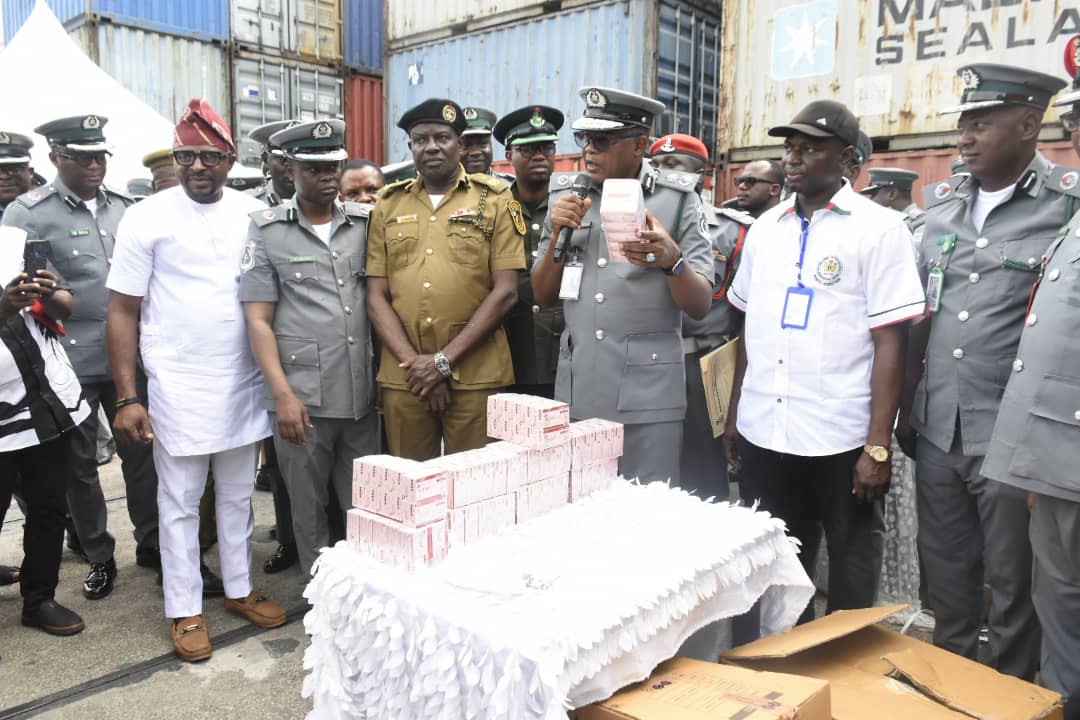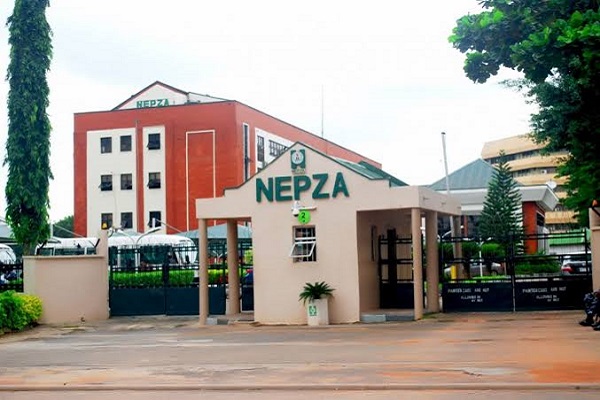©2022 DopeReporters. All Right Reserved. Designed and Developed by multiplatforms
Tag:
Generates
The Edo State Government on Tuesday said it generated over N316.59 billion from Internally Generated Revenue from 2016 to September 2024.
The Chairman of the Edo State Taskforce on IGR, John Osagie Inegbedion, disclosed this during the Q3 2024 EIRS Quarterly Performance Review (QPR) meeting held in Benin City.
Inegbedion said the amount represented 370 percent growth of revenue generated in the past eight years.
He added that the Smstate’s revenue is projected to close at N85 billion by the end of 2024.
He, however, added that the N67.29 billion generated in 2024 was higher than the projected amount of N55.64 billion for the third quarter in the year.
The IGR taskforce chairman attributed the increase in monthly revenue generation to the government’s reforms in revenue administration.
Inegbedion posited that with a monthly average of N7 billion, the state is projected to close the 2024 IGR collection year with N85 billion and is expected to hit N120 billion in 2025.
According to him, in 2016 when Governor Godwin Obaseki took office, IGR collection stood at N23.64 billion and with the government’s reforms in revenue administration, the state continued to witness consistent growth in its revenue.
“In 2017, the state experienced a slight increase with a record of N27.19bn, 2018 recorded N29.62bn and 2019 had a significant increase of N35.2bn.
“The year effect of COVID-19 however reduced the IGR performance to N28.02bn. However, there was a spike in the collection of 2021 amounting to N38.67bn.
“For 2022 it was N45.06bn and for 2023 it was N62.08bn. Currently, as at September 2024, (Q3), we have recorded N67.29bn as against N55.64bn Year-to-Date IGR budget of 2024.
“The growth recorded by this administration in the last eight years is N62bn indicating a growth rate of 370%,” he said.
The Nigerian Customs Service said it has generated N4.2 billion as revenue in the first nine months of 2024.
The Comptroller General of NCS, Bashir Adeniyi disclosed this in a workshop held in Lagos on Saturday.
Adeniyi, represented by the Comptroller Customs Area Controller, Tincan Island Port Command, Dera Nnadi, boasted that the service had already surpassed 2022, and 2023 revenue generation.
CGC said that the services’ plan is to surpass its 2024 target of N5.3 million by the end of the year.
“What this means is that we have already surpassed our 2023 collection by over N1 trillion even though the year has not yet ended. This will enable you to understand the enormity of the progress that we have made leveraging digital technology.
“Let me also try to relate this to our 2022 revenue. The Service was able to collect N2.6 Trillion in 2022. So, you can see that we are making steady progress and this is possible because we are deploying digitalization, ICT and innovation in our business process”, he stated.
Recall that total revenue generated in Nigeria in 2023 stood at N12.37 trillion according to the Federal Inland Revenue Service.
Africa’s youthful energy is driving economic and social progress with its innovative ideas and entrepreneurial drive. With 40 per cent of the population under the age of fifteen and another 100 million children expected by 2050, Africa is projected to have the youngest and largest workforce globally by 2035. This presents the continent, and the world, with an unprecedented opportunity to increase food security, improve health, heal our planet, and create jobs. But it hinges on a critical factor: harnessing the full energy and talents of young women and girls across Africa.
The Mastercard Foundation’s new report, “Young Women in Africa: Agents of Economic Growth and Transformation by 2030,” forecasts that accelerating young women’s economic productivity can unlock an estimated $287 billion in economic value in Africa—equivalent to a 5 per cent increase in GDP —and create 23 million jobs on the continent by 2030. What would it take to achieve this? Several factors. First and foremost, we must ensure that girls and young women have access to education and stay in school.
Right now, 34 million adolescent girls of secondary school age are not in school. Only 26 per cent of young women in Sub-Saharan Africa complete secondary education. About 8 per cent are enrolled in tertiary education. This translates into staggering losses in lifetime productivity and earnings equivalent to a $10 billion loss in GDP across the continent.
The Mastercard Foundation is guided by our vision of a world where everyone has the opportunity to learn and prosper. We have worked with extraordinary organizations over the past decade to support girls’ education and increase women’s participation in the workforce. Substantial progress has been made, thanks to the dedication and grassroots efforts of our partners.
To date, the Mastercard Foundation Scholars Program has enabled over 45,000 young women and men to access quality education and develop their leadership capabilities, working with more than 40 education partners. Additionally, we work with young ed-tech entrepreneurs to deliver education via digital platforms to two million young people. About 70 per cent of them are young women.
Much more remains to be done.
We are scaling successful programs to advance access to secondary education and improve post-secondary school pathways, including tertiary education, Technical and Vocational Education and Training, and work opportunities. These will enable girls and young women to access and complete their education. Over the next seven years, the foundation will significantly expand our long-standing partnerships with the Campaign for Female Education and the Forum for African Women Educationalists with $360 million – to support over 70,400 young women and girls who live in economically disadvantaged communities to complete their education and start their own businesses or access employment.
Take the example of Juliana: Born into a family of seven in the Northeast Region of Ghana, Juliana’s journey to becoming a qualified nurse was fraught with challenges. Her parents, who are farmers, struggled to pay for her school fees and learning materials. Through our partnership with CAMFED, she completed her secondary education and went on to study nursing at Central University in Ghana. Today, she not only serves her community as a Nursing Officer but also leads a social enterprise, the Sumwaana Shea Butter Processing and Marketing Co-operative, which is providing employment for over 100 women in her region. Juliana is a powerful illustration of how access to education and support transforms lives and communities.
Working with CAMFED and FAWE, we will deepen our collaboration with ministries of education across 10 African countries, over 500 universities and tertiary institutions, and more than 1,400 secondary schools, to ensure education systems are responsive to the needs of girls and young women. Through these partnerships, we will continue to foster collaboration with government entities, schools, and community stakeholders to integrate important program components such as implementing re-entry policies for young mothers and promoting equitable allocation of education budgets. These programmes will provide in-school mentorship to enable girls to access and complete secondary education.
Additionally, they provide opportunities for those who left school to transition to tertiary education. These systems-level initiatives are expected to reach close to 3 million young people.
Education is the bedrock for realising and sustaining Africa’s economic growth. As you’ll see in our report, integrating women into the workforce and enabling them to succeed as employees and entrepreneurs requires more than education. We also need policies that ensure young women have access to affordable capital, land, and equipment, as well as business networks and markets.
Importantly, we must understand and respect the unique roles many women play in their families and provide them with the right support. For example, many young mothers need affordable childcare options, transportation, and flexible work arrangements. This essential footing will enable them to pursue higher-paying jobs and entrepreneurial opportunities, driving both innovation and economic diversification.
At the upcoming UN General Assembly, we are convening leaders and practitioners who play an influential and impactful role in girls’ education and women’s economic empowerment in Africa. This exchange of ideas is focused on insights into successful programmes and how they can be expanded.
The economic future of Africa depends on the empowerment of all young people, especially girls and young women playing a full and meaningful role. Through education, economic integration, and a shift in mindsets, we can build a future where every girl can learn and every woman can earn, lead, and thrive.
This is not just a vision; it is an imperative to create a prosperous and sustainable Africa.
Roy is the President and CEO of the Mastercard Foundation
The Managing Director of Nigerian Export Processing Zone Authority, (NEPZA) Dr. Olufemi Ogunyey, said the agency has so far generated N6billion in the first quarter of 2024.
Ogunyemi said the Authority in 2023 generated N8billion, Giving a breakdown of how the N8billion was used, he said N4b was sent to Federal Government account while N4billion was set aside for running of the agency.
The MD spoke during an oversight visit by House of Representative led by the Chairman, Ahmed Munir in Abuja, stating the authority is looking forward to surpassing the N8billion of last year this 2024.
He stated: “The challenges in Free Trade Zones are enormous, as there are lots of conflicts between agencies operating in the zone. Agencies like Federal Inland revenue Service, Customs and NEPZA are all at loggerhead with each other, this is majorly due to the obsolete Act establishing NEPZA since 1992”.
He mentioned another important challenge facing the zone as lack of adequate infrastructure and appeals to the government to address this issue.
He also said when he took over in 2023, he inherited 52 zones, and licenced two more companies, Indorama and Arise.
He called on the National Assembly to help review the NEPZA Act, which has been in existence since 1992,
Munir noted the urgency to reposition NEPZA is now, as he speaks on the National Assembly working on the NEPZA Act. He added that so many bills are piling up, ‘the earlier the House of Representative gets information to work on NEPZA Act the better.
He noted that waiting for Presidential order from Presidency on Act amendment may linger, out of the 52 free trade zones not functioning, we will investigate and get the reason why they are not functioning, we will redirect the operation of the zone to organizations willing to make it work.
The Apapa Command of the Nigeria Customs Service (NCS), on Monday, announced a total revenue collection of N1.02 trillion from the command between January to June, 2024.
Speaking during the half-year media briefing in Lagos, the Customs Area Controller, Apapa Port, Compt. Babatunde Olomu, said the collection rose by 143 per cent compared to N421.38 billion collected in 2023.
The Customs attributed the revenue increase to the command’s improved trade facilitation, revenue recovery and anti-smuggling strategies since he assumed office on May 6, 2024.
This collection is coming despite a sharp reduction in the volume of trade, it is necessary to note that extra measures have been put in place to prevent losses of government revenue.Upon taking over as Area Controller of Apapa, I set up a revenue recovery committee comprising seasoned and dedicated officers with a mandate to carry out more detailed look into areas of leakages, especially in bonded terminals under Apapa Command.”
“Within the period under review, the command said it seized 11 containers containing prohibited items such as expired and unregistered pharmaceuticals, foot-wears, used clothing, armoured cables and frozen poultry products, among others, with a Duty Paid Value (DPV) of N424,105,975.00, Olomu disclosed.
Giving the seizure for the corresponding period of 2023 as 42, with a DPV of N1.4 billion, the comptroller added that “just last week, we uncovered a large quantity of expired and unregistered pharmaceuticals in 3x40ft container numbers.”
He gave the containers as TCKU 6928184, MRKU 4422733, MRSU 5550243, and another 3x40ft container nos. MNBU 3934925, MEDU 9107559 and MEDU 9752980.
They were loaded with 7,580 cartons of frozen poultry products unfit for human consumption, which is against schedule 3 of the revised import prohibition list of the Common External Tariff (CET) and violate section 233 of the Nigeria Customs Service Act 2023, he stated.
The command’s strides in trade facilitation, Olomu said, included “applying a blend of intelligence with community relations for better awareness of our operating environment to achieve greater trade facilitation and fight criminality.”
He noted that this became more workable through the command’s team of dedicated officers charged with the responsibility of addressing all complaints or disputes within record time before escalation to his office for prompt action.
Olomu added that his office is open for everyone to discuss anything that will facilitate legitimate trade and promote government interest at all times, including receiving information on suspected smuggling activities.”
Noting that his leadership uses “robust intelligence gathering for enhanced revenue collection, backed with deliberately improved customs-community relations,” he said the efforts of the officers at promoting trade facilitation were “yielding good results with attendant ease of doing business, prevention of revenue losses, and closer interactions with sister-government agencies and private sector stakeholders.
“We are also not leaving anything to chance for economic saboteurs as our non-intrusive inspection (NII) regime is fully in place, where scanners are deployed for cargo examination with support of physical examination where and when necessary.
Concerned about the implication of the smuggled items, Olomu warned that “the harmful effects of fake and unregistered pharmaceutical products on citizens are unquantifiable and as a responsible service, we owe Nigerians the duty of preventing them from being exposed to this dangerous importation.”
Therefore, he warned “perpetrators of smuggling, duty evasion and other forms of criminality frowned upon by the Nigeria Customs Service Act 2023 and other extant laws that Apapa Command is poised to nip illicit importation in the bud.
“Consequently, in line with the CGC zero tolerance for smuggling, I have reformed the command’s way of treating transires by ensuring more meticulous management of cargoes moving from the mother port to bonded terminals. This has become necessary to prevent a situation where smugglers attempt to perpetuate illegalities in bonded terminals.
“To sustain this tempo, no cargo is allowed to exit our control without thorough inspection using the scanner. We shall not compromise on this, as we will keep making seizures, detention and arrests where necessary to protect the national economy and prevent Nigerians from exposure to dangerous or unwholesome products like illicit drugs.”
He commended such sister-agencies like the Nigeria Police, Department of State Service (DSS), NDLEA, NAFDAC, SON, NIS, NAQS, Nigerian Army, Nigerian Navy and others working with the NCS like a team with shared responsibilities and support.
Kwara State Command of the Nigeria Customs Service (NIS) has generated N10.027 billion into the federal government’s coffers between January and May 2024.
The command under review also seized 21 prohibited items worth a total duty-paid value of N35,416,140.
The contraband and prohibited items seized by the customs officers included 507 bags of foreign rice, one unit of used vehicles, 1,055 pieces of used tyres, and 164 Jerry cans of petrol, each 25 litres, totalling 4,100 litres.
The customs area controller, Kwara Area Command, Faith Ojeifo, made these disclosures in Ilorin, the state capital while briefing newsmen on the command’s activities in the last six months.
The event also featured the distribution of empowerment items to members of the Customs Officers Wives Association (COWA) and the donation of relief materials to the Kwara State Ministry of Social Development for further distribution to the society’s most vulnerable members.
Ojeifo said, “I want to inform you that from January to May 2024, we collected and remitted a total sum of N10,027 580,694.63.
“A comparative review of the preceding year, 2023, indicates that the command surpassed what was collected in the same period last year with N2,885,779,644.03, which represents a 40.41 percent increment.
“Within the period under review, I rejig my operation teams, which led to 21 seizures of different prohibited items. These include 507 bags of foreign rice, one unit of used vehicles, 1,055 pieces of used tyres, and 164 jerry cans of PMS of 25 litres each (4,100 litres). The total duty paid value is – N35, 416,140,00.”
The area commander said donating relief materials to the Ministry of Social Development symbolised the comptroller general of Customs’ shared commitment to caring for those in need.
On the empowerment of members of COWA, Ojeifo said, “We recognise that women are the pillars of our families, our communities, and our economies. They are the ones who nurture, educate, and inspire future generations. They take care of our children and homefront while we are far away from home doing our jobs of protecting the nation’s border from offensive goods like arms and ammunition, drugs and other illicit goods.
“The empowerment aims to keep you busy, self-dependent and productive while you are far away from home, which will no doubt reduce the burden of always waiting on your husbands.
“After months of extensive training of registered wives and widows of customs officers in different empowerment training programmes such as baking, cosmetics, sewing, and other skill acquisition. Today, under my leadership, we empower about 67 wives and widows of customs officers with sewing machines, baking ovens and make-up kits.”







